Career-Change Dogs
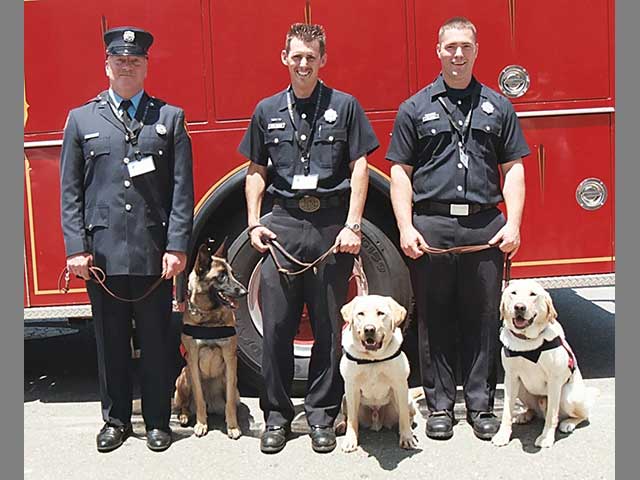
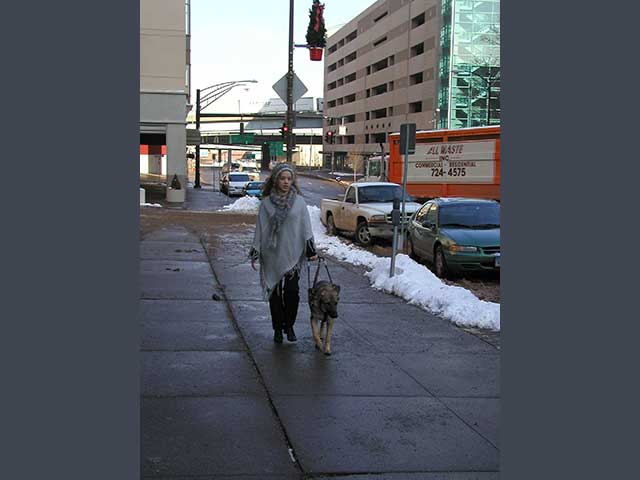
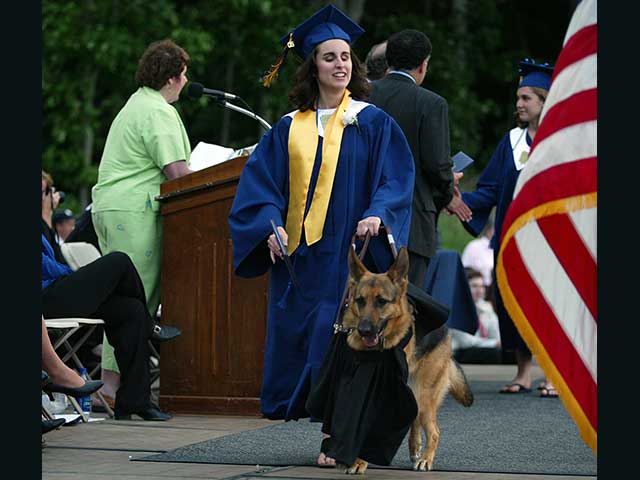


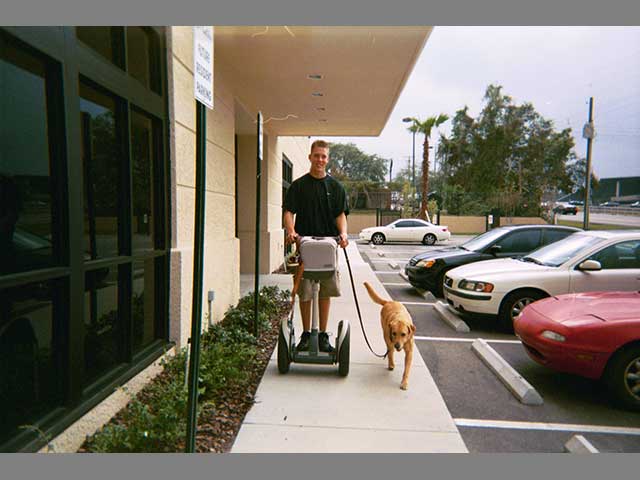

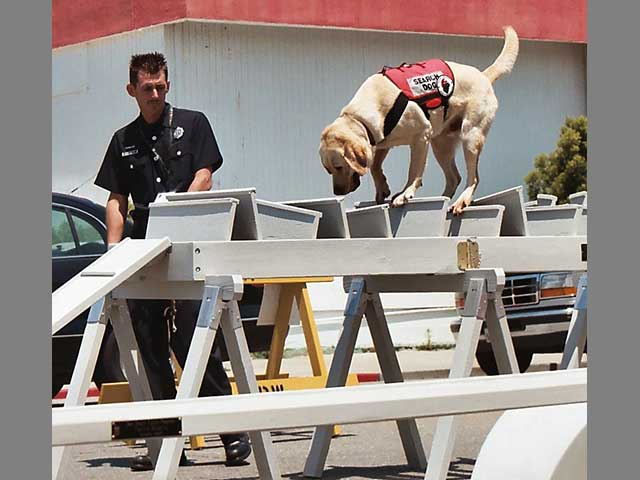
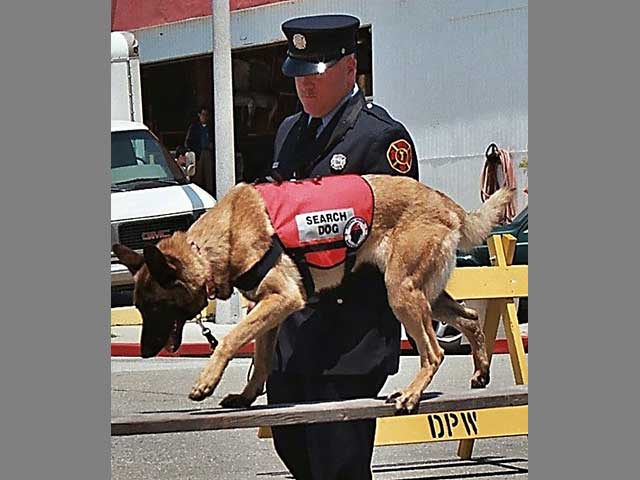
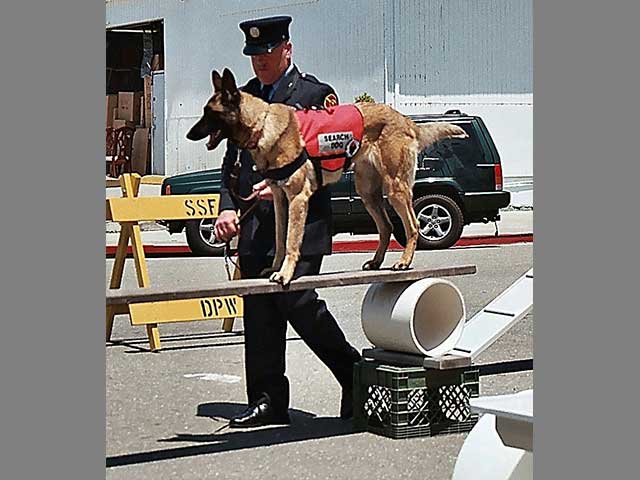
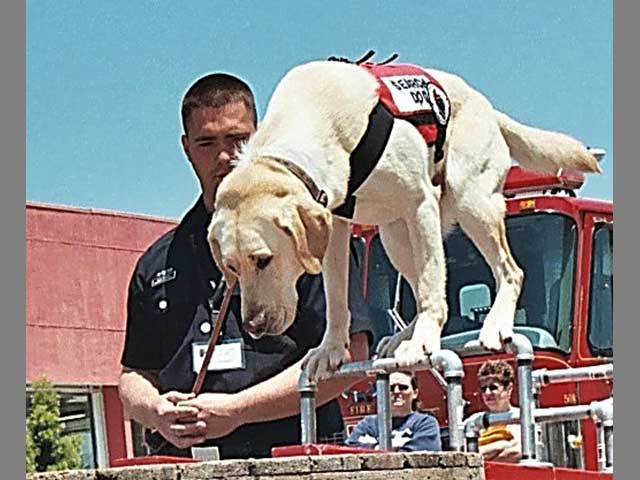
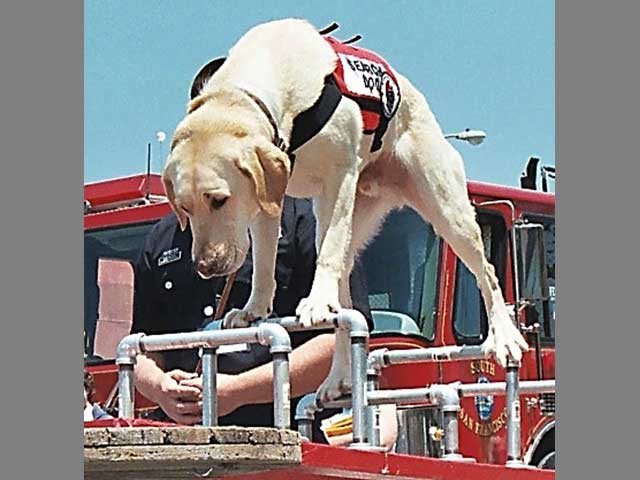
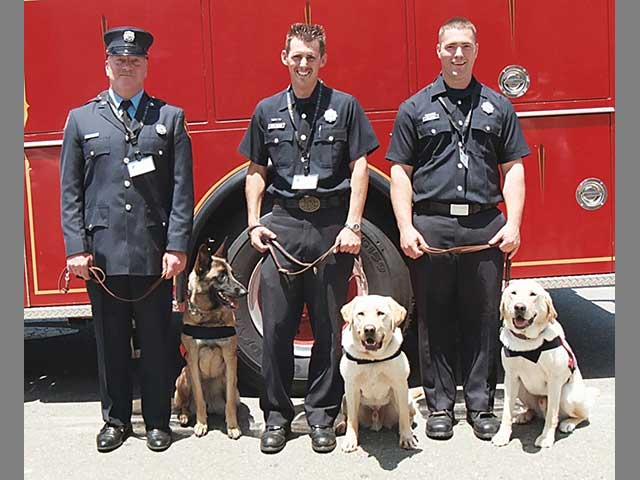
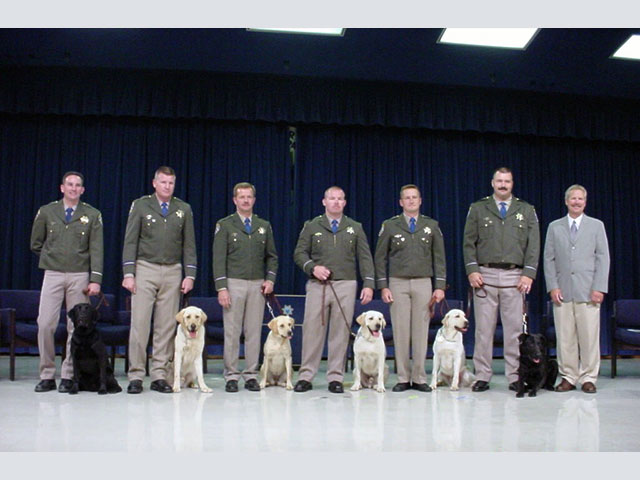
Before you earn your guide-dog jacket, you'll have to face your worst fears, control your wildest natural temptations, listen with rapt attention to every spoken word, all while negotiating the configurations of busy crosswalks, office buildings, parking lots, elevators and staircases, and other unpredictable situations your human winds up in.
Keep in mind that about half of all guide-dog cadets don't make it through such rigorous training. The good news is, even if you aren't chosen to be a guide dog there are several other interesting career options.
Let the testing begin...
* * *
Peter Nowicki, director of training at Fidelco Guide Dog Foundation, in Bloomfield, CT, says guide-dog cadets are assigned to a trainer when they are about eight weeks old. The cadets live in the trainer's home and work intimately with the trainer every day for up to 18 months. The first day of training, the cadet might head out for a walk. "The dog will observe children in playgrounds and observe people walking by, other dogs on a leash," Nowicki says. That might not sound too challenging. Except the cadet is not allowed to run up to those children, or romp with that fellow dog. If there is any future as a guide, the dog has to stay right at the trainer's side.
Next comes a test of patience. The cadet must be silent for hours at a time without getting antsy. "Someone who works in an office all day needs a dog that will just lie around, go out at lunch for a little while, then come back in and sit around again for a few hours," Nowicki explains.
It gets more rigorous from here. "Guide dogs have to handle things we take for granted," Nowicki says, "like a truck backfiring, a mailbox slamming shut, or a garbage can smashing onto the ground." The cadet can't run when he hears these sounds, can't even turn around to see what it was.
Perhaps mailboxes and trucks and garbage cans don't phase the cadet. But we're not done yet. Every dog has at least one unexplainable phobia, and the trainers will find it. Perhaps the cadet avoids walking on manhole covers, or flips out of control at the explosive sound of a Harley Davidson? How does the cadet react when a huge dog bears down on her without warning? For most dogs, these kinds of fears are not an issue: the dog and the human just laugh it off. But if a cadet is destined to be a guide dog, she must be stoic about all this. Someone is going to rely on her steady hand, or rather her paw. When trainers find that darkest fear—and they will find it—they put the cadet face to face with it every day. They are teaching the dog to ignore it.
Nowicki describes one cadet whose fear of lawnmowers was so intense he would panic and try to escape. "We started having the dog walk by the machine when it was turned off. Then we started running it, but from a distance. We gradually moved closer." After a while, Nowicki says, the dog could walk right by a running lawnmower with no hesitation. Cadets are given every chance to succeed. "We keep trying," Nowicki says. "We keep asking, 'can the dog handle the problems now?'" One by one, every fear receives the same patient desensitization process. After the fears are conquered, the cadet then has to memorize numerous commands, listening closely, resisting the urge to follow those delicious scents that pop up everywhere along the way.
"I want to exhaust every possibility from our end," Nowicki says. "We spend a lot of time training the dogs and caring for them. We never want to drop a dog from training." But what if a guide-dog cadet just cannot get over a lawnmower phobia or the fear of motorcycles, or jumps every time a car door slams? What if the cadet just can't stop playing with other dogs when she's supposed to be working, and just doesn't feel like following all those commands? It's understandable, given all the intense training. But there is hope. The cadet can become what trainers affectionately refer to as a "career-change dog."
Pat Cook, canine resources manager at Guide Dogs for the Blind, in San Rafel, CA, says that once it is clear that the guide work is not possible, her agency makes a career-change decision quickly, to cause the least stress. "We want the dogs to be happy," she explains. "Sometimes, a dog is just telling us that he's unhappy doing guide work, but would love to do another job where he could use his other talents."
Mike Sergeant, director of field operations for Guide Dog Foundation for the Blind, in Smithtown, NY, says, "We know that not every dog is going to be a guide dog, because of the huge requirements. But it's just like people. We choose jobs because of what we like and what we're best at. Our dogs get to choose what they're best suited for." He says the dogs could teach people something about important transitions. "Dogs make changes easier than people do. As long as they're treated well, get the right love, guidance, and training, the dog's attitude is, 'I can do this new job.' If people did the same thing this would be an easier world to be in!"
After working so closely for so much time, the cadet and the trainer have a strong bond. The trainer is like a career counselor and knows all the dog's quirks and habits. The decision about a career change is a serious one, and the trainer takes all the dog's natural skills and tendencies into consideration. Only then will the trainer suggest what career path the dog should pursue next. "Anything else would be unfair," Nowicki says. "Why put the animal in a stressful situation, in another job he can't handle?"
* * *
Perhaps a cadet overcame every fear, but just couldn't resist playing with other dogs or had some trouble remembering commands. Joanne Ritter, director of marketing and communications at Guide Dogs for the Blind says career-changers can make a lateral move and become what is known as "buddy dogs." These career-changers work with blind children but don't act as guides out in public (that didn't work out, remember). But buddies do teach children many valuable lessons. "The child learns how to be personally responsible for grooming and obedience," Ritter says. "We give them an almost-guide dog, one that's just a little too playful and doesn't want to work as much. But it's still a great dog." When that child grows up, she will know how to work with a fully trained guide dog. The career-changer helps prepare her.
If it was excess energy that ended a guide-dog career, police work may be just the thing. "Police dogs need to be very good with people," Nowicki says. "They must have a lot of confidence. They need to leap out of the car if a police officer is threatened." But he cautions that these dogs still deal with loud noises, and lots of distressing situations. "They have to handle gun blasts, and they have to witness extreme violence. It's very exciting being a police dog!"
Maybe the career-changer likes the excitement of police work, but cringes from violence. Did the dog have to leave guide-dog school because of a tendency to wander way off the sidewalk, following a scent into the woods? Well, sometimes a weakness in one career is a strength in another line of work. For this dog, drug sniffing, bomb detection, or search-and-rescue work may be perfect. These careers welcome high energy (none of those long sedentary periods in an office), and they allow a dog to express the independence that caused so much trouble as a cadet. Joanne Ritter says she can tell when a dog would be great for these jobs. "That kind of dog is really interested in sniffing to direct someone. I'll see this dog and say, 'he's all about nose.'" Nowicki says these dogs must be physically fit. "They need good stamina and determination to track through the woods for hours to find a lost child."
Sergeant says career-changers in his organization (which he calls "capable canines") may become counseling dogs. "We recently placed a capable canine with a counselor who works with foster kids, kids in the juvenile system, and kids who have suffered from abuse. The dogs are great ice breakers. They help build trust with the counselor. Children open up and tell the dog all their problems. The dog will listen and give a kiss when it's proper." To do this work, the career-changer must still have excellent behavior, controlled enthusiasm, and know when to stay put, but there is a bit more room for unique approaches to situations.
For dogs who are not fit for guide work because they just can't resist saying hello to every human they meet, Sergeant says there is another exciting career possibility. "We have 'facility dogs.' These dogs are placed in assistive-living situations like hospices or nursing homes. The dog becomes the center of attention for a whole group of people." A facility dog must have a steady temperament and be patient with all kinds of personalities. The job carries outstanding benefits. "The dog's sole job is to make daily rounds and provide love and affection, give people back some quality of life," Sergeant says. "Dogs rule in these situations. They get tremendous love, and they are well taken care of."
How about working with large groups of kids? Cook tells the story of one career-changer adopted by a teacher at the California School for the Blind. "She brings the dog to work every day, to teach students how to look after a dog, so that when they are old enough and responsible enough, they can apply for their own guide dog." After seeing what the dog can do, Cook says, "the school set up all kinds of programs to teach kids how to handle a dog. He has made a tremendous impact on these kids' lives."
During guide-dog training, the dog was perhaps reprimanded for constantly picking up random objects and bringing them to the trainer. Does this dog also have a knack for making people smile and feel better? A perfect career option might be a "companion dog." As Sergeant explains, "The dog may be trained to do pick up dropped items, or if there is an emergency the dog would retrieve the mobile phone so the person can get assistance. They are also just good at providing love and patience."
Cook says some career-changers in her program become companion dogs for people with social or physical deficits. "We worked with a family recently that has an autistic boy," she says. "They wanted a dog that could be a catalyst for their son to form better connections with other kids." The companion-dog placements described by Cook and Sergeant take time, because a specific dog is matched to a specific person and home environment. Cook spent several days with one family learning just what they needed. "Then, when a particular dog was dropped from guide-dog training," she says, "I knew he was a perfect match for the family." For this job, career-changers must have the good behavior of a guide dog, although they may not have been straight-A students with commands.
In extremely rare cases, the career-changer may end up as a pet. However, Sergeant says, "It is our lowest priority to have these dogs be pets." Ritter says her agency gets far too many phone calls from people wanting pets. "People make the incorrect assumption that they can get a fully trained guide for a pet. We never promote the idea of our dogs becoming pets." Cook says that this would run counter to the whole mission of guide-dog training. "We do this as a service to humanity. We don't raise these dogs to be pets."
Even if a dog doesn't make it as a guide, there are many other jobs, all equal to the original career choice. And one never knows what kind of unpredictable, but terrific, opportunities a new career may offer. Remember that teacher who adopted a dog she took to work every day at the California School for the Blind? Little did she know, this dog was a canine ambassador by day, and worked after hours as a therapy dog. The teacher lived with her niece, whose mother had died recently. Cook says, "The aunt noticed that the dog was going into the niece's bedroom each night. The niece had been keeping a vase of dried flowers by her bedside from her mom's funeral. The girl had this huge emotional attachment to the flowers, and she would scoop up the dried petals that had fallen and place them back around the vase." One day, the aunt went into the bedroom and noticed that the dried-up flowers were gone. "She asked her niece about it," Cook explains, "and the girl said she didn't need the flowers any more. She felt all right now, because she had the dog with her." That dog was not suited for guide work. Sometimes change is great.
